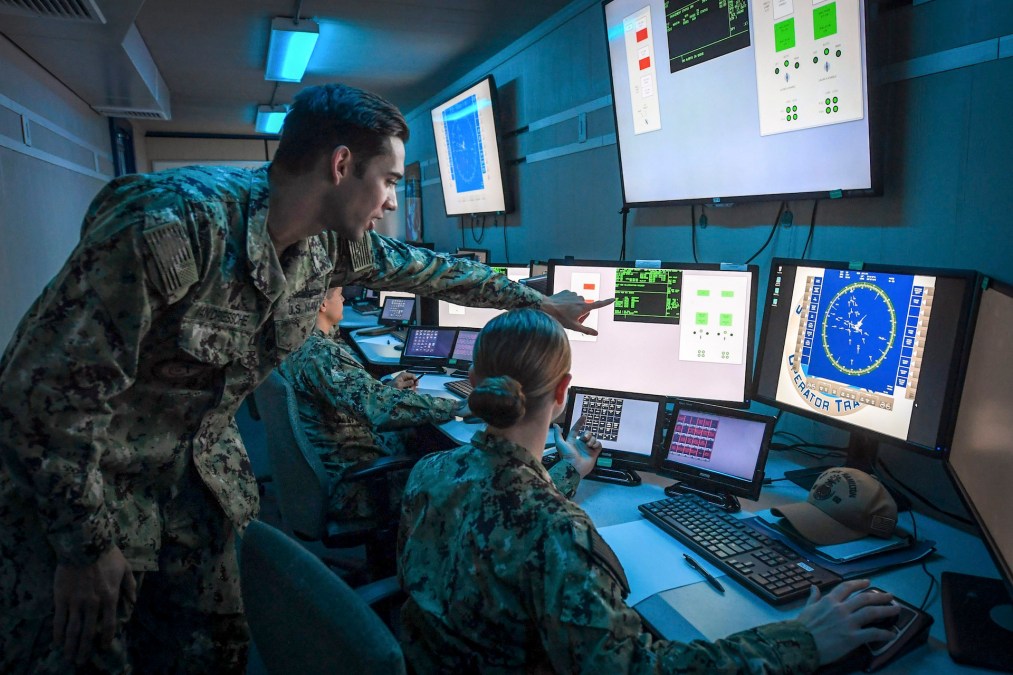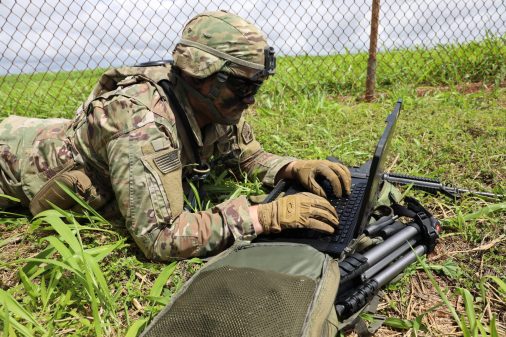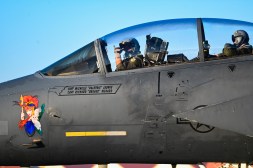Navy’s information warfare personnel need better virtual training environments

SAN DIEGO, Calif. — The Navy’s information warfare community needs more robust virtual training capabilities in order to test its personnel on advanced and sensitive capabilities, according to a top commander.
Due to the nature of such capabilities, there are limitations to the actual systems forces use and have to turn on to train with. In fact, in some cases, the first time they experience the full capability of their weapon systems is in conflict.
“We are pressing hard to get into live, virtual, constructive training environment because as many of you know, information warfare capabilities are typically the type of capabilities that we either don’t have the authorization to fully exercise in our own airspace and waters or frankly, if we could fully exercise them, we don’t want to reveal what we’re truly capable of,” Vice Adm. Kelly Aeschbach, commander of Naval Information Forces, said during a presentation at the annual WEST conference in San Diego on Tuesday.
“Some of our sailors don’t actually learn the true extent of some of the capability available to them, at least in information warfare, until they’re actually out in theater. We’d certainly like to make sure they have that opportunity before they’re actually on the far end in operations,” she added.
This was also a challenge in cyberspace where digital warriors lacked a cyber training ground akin to the Army’s National Training Center or the Air Force’s Red Flag. Oftentimes, the first time cyber personnel encountered a threat was during real-world operations.
As a result, U.S. Cyber Command created the Persistent Cyber Training Environment (PCTE), an online client that allows the cyber mission force to log on from anywhere in the world for individual or collective training as well as mission rehearsal. Prior to the establishment of this range, cyber warriors lacked a centralized place to hone their skills and train.
Aeschbach is looking to better utilize this capability — which is being run and managed by the Army on behalf of the entire joint force — for Navy cyber personnel.
“Where we’re really focused in cyber right now is the Persistent Cyber Training Environment. How do we come up with an architecture that allows our sailors and our officers to operate in environments that they will encounter when they’re actually on the net?” she said. “How do we distribute that to a disaggregated force that’s located globally so they can train on location and keep their proficiency high? We’re on that path with PCTE, but the more we can deliver environments like that, an architecture like that, I think is really key for us.”
Today, information warfare personnel are limited in their training opportunities, she noted.
“I need a place where my sailors and officers, civilians and contractors can fully exploit the capabilities that we’re offering them,” Aeschbach said. “We are pressing hard to get into the virtual environments where we can replicate and connect to the existing capability we have and really let folks loose in terms of working with everything the system has to offer. We were limited in those opportunities now.”
With a realistic and robust environment to train in, personnel not only will be better suited to use their weapon systems, she said, but also have the ability to apply capabilities in ways not previously envisioned.
“As you know, if we unleash sailors in those environments, they will innovate in a way that we’ll discover we have capability we didn’t even know we had. And we also will be able to be more effective and efficient and how rapidly we train those folks,” she added.






